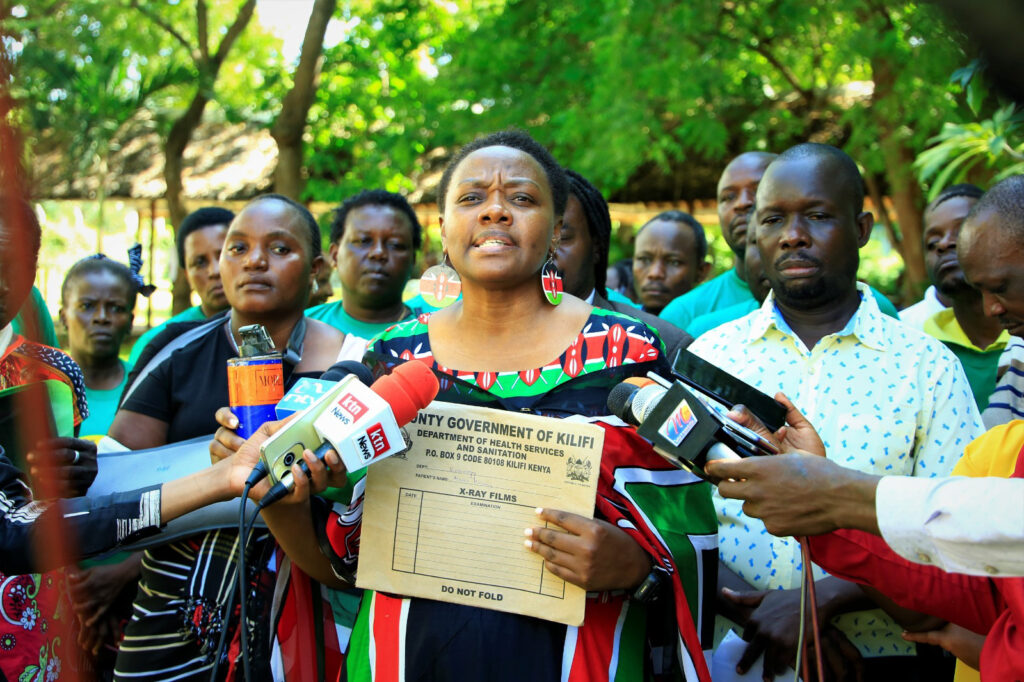Police brutality against lands defenders in Kilifi county condemned

Environmental activist Phyllis Omido marking this year's world environment day at the Reef hotel in Nyali constituency, Mombasa county. She was flanked by Uyombo community and local lands defenders from Kilifi county who are against a neural power plant in the area. [Photo/Tobby Otum]
Environmental activist Phyllis Omido has condemned police brutality against lands defenders of the Uyombo community in Kilifi county.
Phyllis added that the country’s constitution has assured every Kenyan the right to land as the right to land is globally recognized.
She spoke during the marking of this year’s environment day held at the Reef hotel in Nyali constituency, Mombasa county.
The environmental activist said the work of the lands defenders is enshrined under the principles of the United Nations.
Phyllis, who is the founder of Center for Justice Governance and Environmental Action [CJGEA], said while celebrating the world environment day she condemns the recent arrest of lands defenders in Kilifi county.
“The reward they got for fighting for a noble cause was being tramautized through being arrested by the police,” she pointed out.
The CJGEA founder said the country is marking the day on a negative note.
Phyllis reiterated that she condemns police action against Kenyans who want to take the country towards the use of renewable energy.
She said there is need to engage the country in the controversial renewable energy debate in which a referendum is being required arguing that spending Sh 500 billion is not a joke.
“The sum of money comes from taxpayers despite 80 per cent of Kenyans not using renewable energy,” she added.





